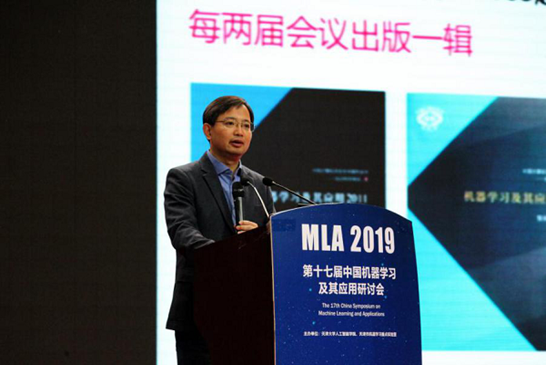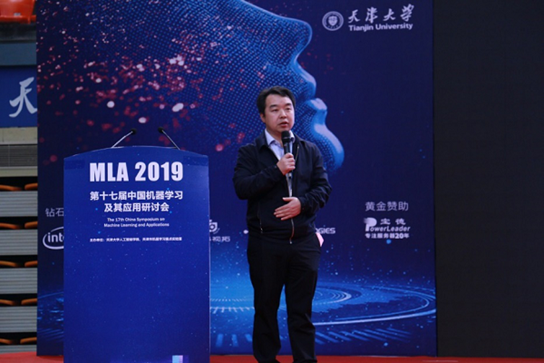17th China Symposium on Machine Learning and Applications Held at Tianjin University
The 17th China Symposium on Machine Learning and Applications (MLA 2019) was held on Tianjin University’s Weijin Road Campus from Nov. 1stto Nov.3rd, 2019. It was hosted by the School of Artificial Intelligence and Tianjin Key Laboratory on Machine Learning both from Tianjin University’s College of Intelligence and Computing. The symposium was supported by Intel (China), the 4 Paradigm, SeetaTech, Yueran Technology and Baode Technology. More than 60 experts and scholars from home and abroad and more than 2,000 teachers and students from universities in China attended this symposium. Professor Hu Qinghua from Tianjin University and Professor Zhang Minling from Southeast University served as the program chairs.

Professor Zhou Zhihua introduces seriesseminars atMLA 2019
Prof. Zhou Zhihua, Dean of Nanjing University’s School of Artificial Intelligence introduced the history and development of MLA which has been successfully held for 17 years and aims to promote the academic exchange and discussion over the frontier developments of Machine Learning.

Professor Hu Qinghua presides over the opening ceremony
Prof. Hu Qinghua gave a brief introduction on the preparation work and arrangement of the symposium. Twelve experts from Tsinghua University, Nanjing University, Tianjin University, Institute of Automation at Chinese Academy of Sciences, Carnegie Mellon University, The Chinese University of Hong Kong and Microsoft Research Asia were invited to present the latest achievements in Machine Learning. In the Spotlight and Poster Session, 50 authors were invited to present their papers published at top conferences in the field of Artificial Intelligence over the past year. In the Top Conference Review Session, 16 well-known scholars shared the latest trends in the top international Artificial Intelligence conferences in the past year. In the Industry Session, experts from 4 companies talked about the application of Machine Learning technology in the industry.
MLA 2019 presents impressive works and achievements in Machine Leaning. This symposium not only provides a good platform for all the colleagues in this field to get together and exchange ideas but also inspires future research and works.
By Handi and Lina from the College of Intelligence and Computing
Editors: Eva Yin & Doris Harrington

